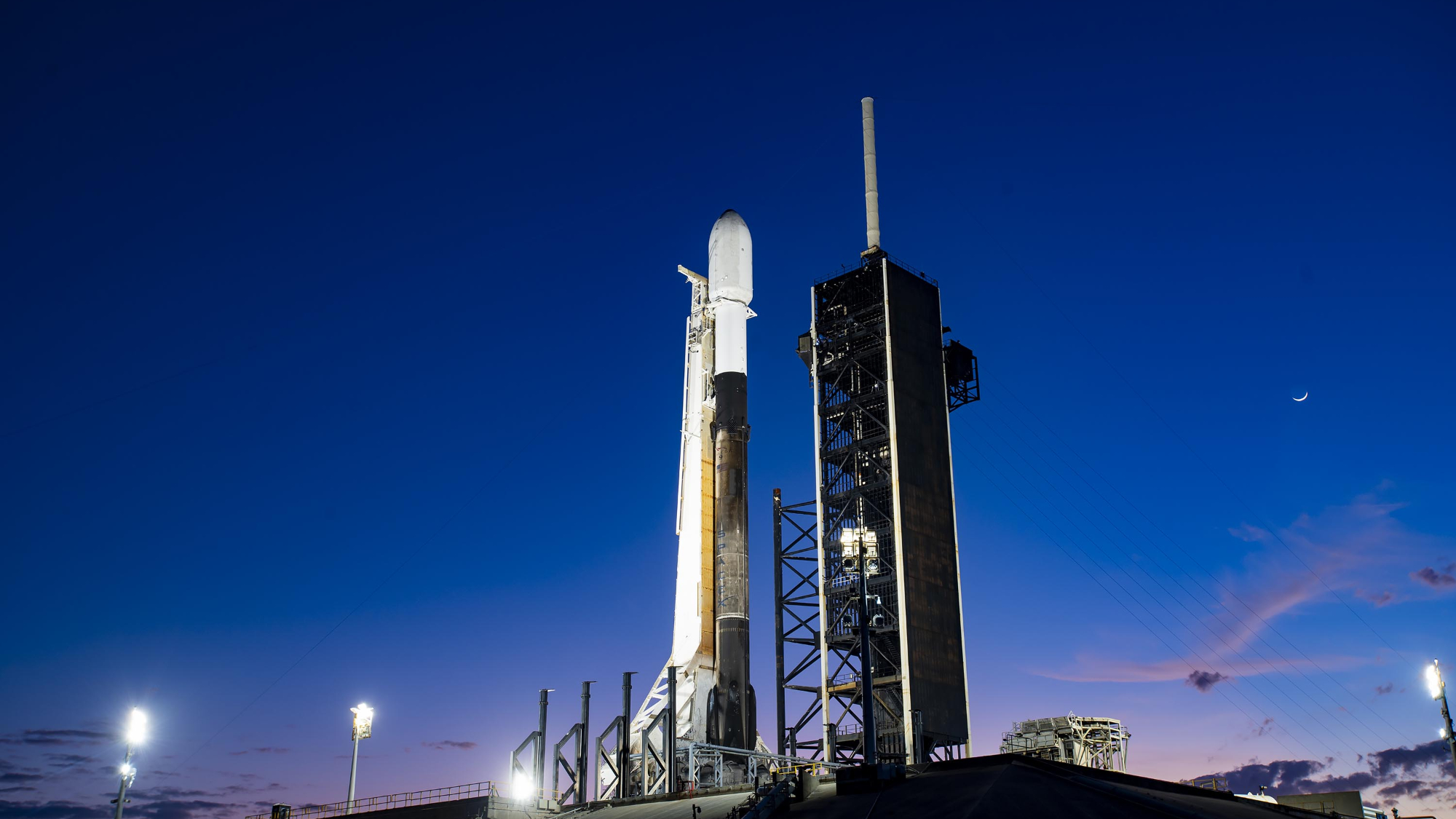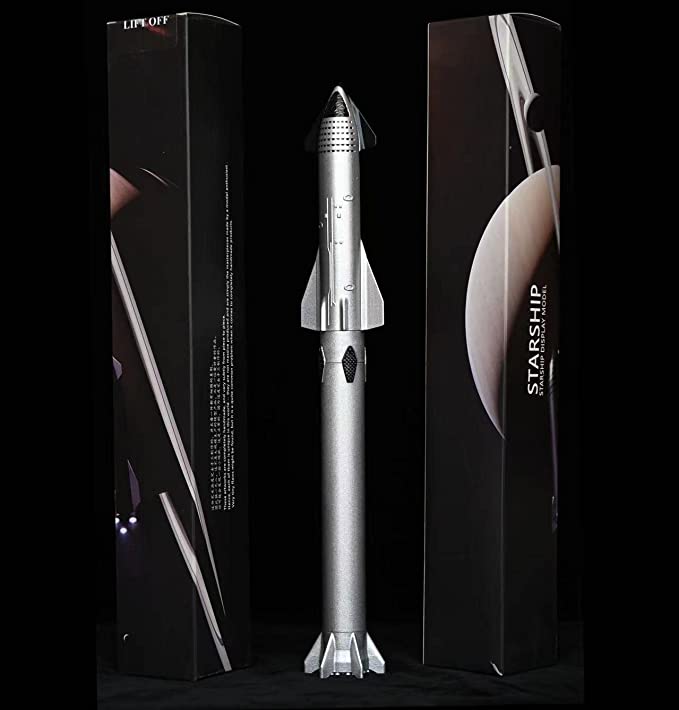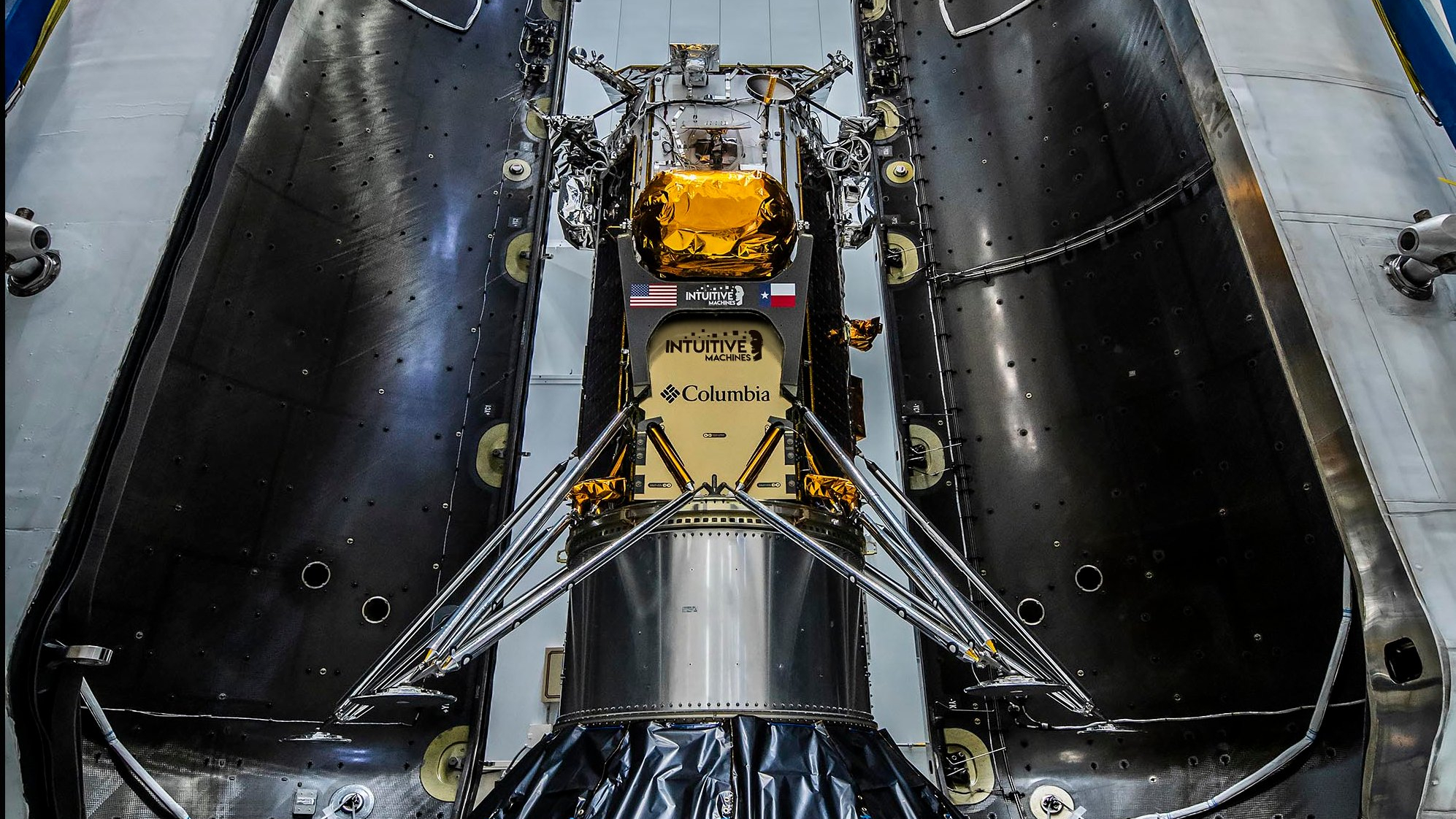SpaceX delays launch of private Intuitive Machines moon lander due to methane fuel issue
The next launch attempt is set for Thursday (Feb. 15) at 1:05 a.m. EST.

SpaceX postponed the launch of a private moon lander built by Intuitive Machines late Tuesday (Feb. 13) due to a temperature issue with the spacecraft's liquid methane fuel.
The Odysseus moon lander was originally scheduled to launch toward the moon on a SpaceX Falcon 9 rocket in the early-morning hours Wednesday (Feb. 14) from Pad 39A of NASA's Kennedy Space Center in Florida. Liftoff is now set for no earlier than Thursday (Feb. 15) at 1:05 a.m. EST (0605 GMT).
Related: How to watch SpaceX's Intuitive Machines moon lander launch

You can have a SpaceX Starship of your own with this desktop rocket model. Standing at 12.5 inches (32 cm), this is a 1:375 ratio.
"Standing down from tonight's attempt due to off-nominal methane temperatures prior to stepping into methane load," SpaceX wrote in a late-night update on X (formerly Twitter).
Intuitive Machines' Odysseus moon lander uses liquid methane as propellant to fuel its propulsion and landing systems. That propellant is scheduled to be loaded into the lander shortly before launch. It was during those preparations that SpaceX detected "improper methane temperatures," NASA wrote in an update.
Odysseus will carry six NASA instruments to the moon, along with a half-dozen commercial payloads.
SpaceX and Intuitive Machines have a three-day window from Feb. 14 to Feb. 16 in which to launch the Odysseus moon lander and still land on the moon on Feb. 22. After that, the next launch attempt could slip to March. The mission, called IM-1, is Intuitive Machines' first attempt to land on the moon and is aiming for a crater near the lunar south pole.
Get the Space.com Newsletter
Breaking space news, the latest updates on rocket launches, skywatching events and more!

If successful, IM-1 will mark the first-ever private mission to land on the moon. It will also be the first U.S. lunar landing since 1972, which was carried out by NASA's Apollo 17 astronauts. IM-1 is the second mission for NASA under the agency's Commercial Lunar Payload Services program, which uses private spacecraft to deliver experiments to the moon.
Another private company, Intuitive Machines rival Astrobotic, failed in an attempt to send its Peregrine lander to the lunar surface last month. That mission launched on Jan. 8 atop a United Launch Alliance Vulcan Centaur rocket but suffered a fuel leak in flight that made a landing attempt impossible. Instead, the Peregrine lander looped around the moon and returned to Earth, burning up in our planet's atmosphere.
Scientists with NASA and Intuitive Machines hope Odysseus will succeed where Peregrine failed. The spacecraft is carrying novel technology experiments, cameras and other gear that will help NASA better prepare for future Artemis astronaut missions to the moon.
Editor's note: You can watch SpaceX's Odysseus IM-1 moon lander launch for Intuitive Machines and NASA live online on Feb. 15. NASA's webcast will begin at 12:20 a.m. EST (0520 GMT).
Join our Space Forums to keep talking space on the latest missions, night sky and more! And if you have a news tip, correction or comment, let us know at: community@space.com.

Tariq is the Editor-in-Chief of Space.com and joined the team in 2001, first as an intern and staff writer, and later as an editor. He covers human spaceflight, exploration and space science, as well as skywatching and entertainment. He became Space.com's Managing Editor in 2009 and Editor-in-Chief in 2019. Before joining Space.com, Tariq was a staff reporter for The Los Angeles Times covering education and city beats in La Habra, Fullerton and Huntington Beach. In October 2022, Tariq received the Harry Kolcum Award for excellence in space reporting from the National Space Club Florida Committee. He is also an Eagle Scout (yes, he has the Space Exploration merit badge) and went to Space Camp four times as a kid and a fifth time as an adult. He has journalism degrees from the University of Southern California and New York University. You can find Tariq at Space.com and as the co-host to the This Week In Space podcast with space historian Rod Pyle on the TWiT network. To see his latest project, you can follow Tariq on Twitter @tariqjmalik.









